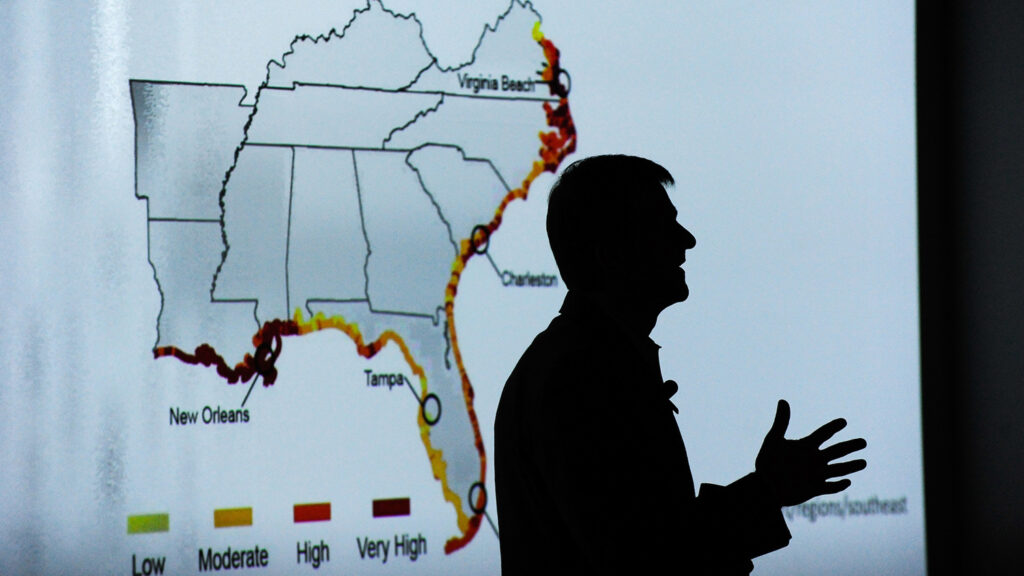Degree Information
Design your own path to personal, professional and academic enrichment.
Degree Requirements
The MALS degree requires at least 30 credit hours, which equates to 10 courses. Students must complete:
- A six-course interdisciplinary concentration.
- At least two MALS seminar courses.
- A research methods course (broadly defined) or a third MALS seminar.
- A culminating project for which three credit hours are earned.
Take the Next step
Individualized Concentration
As part of your application, you’ll propose a six-course concentration on an interdisciplinary theme or topic. You’ll finalize your area of concentration once you’ve completed 15 credit hours (five courses) in the program, working in consultation with your advisor.
The concentration courses must come from at least three different academic disciplines, with no more than two courses from any one discipline. At least two courses in the concentration must be from the humanities or social sciences.
MALS students have a variety of options when selecting courses for their individualized plan:
- NC State courses: You can take courses from various departments and colleges at NC State. View graduate course offerings at NC State in the online Course Catalog, where you can search by discipline or by keyword (e.g. “sustainability” or “community development”). Our evening seminars and classes accommodate full-time working professionals.
- Independent study: To explore a particular area of interest, you can work with an NC State faculty member who will supervise your work. Examples of independent study include extensive reading on a topic not available through an existing course, or engaging in a specific project or activity that has educational value for you. Your faculty supervisor will typically require some written work as part of your independent study.
- Courses through other universities: You may take courses from other universities and have the credit count toward your MALS degree. However, be sure to check with your faculty adviser first. It is especially convenient to take courses from UNC-Chapel Hill, Duke, and North Carolina Central, at a cost equivalent to NC State courses. If this interests you, you should first research whether you are eligible to enroll in a specific course (for example, Duke MALS seminars are limited to Duke MALS students). If the course you wish to take is at Duke, UNC-Chapel Hill, or North Carolina Central, you can register using the inter-institutional registration form available from the NC State Registration and Records Office.
Sample Concentrations
Here are just a few examples of concentrations that recent MALS students designed:
Science, Technology and Society
- ENG 515: Rhetoric of Science and Technology
- HI 582: Darwinism in Science and Society
- MA 433: History of Mathematics
- PHI 498: Special Topics: Philosophical Issues in Environmental Ethics
- PA 550: Environmental Policy
- MLS 501: The Industrial Revolution
National and International Issues and Decision-Making
- ECG 515: Environmental and Resource Policy
- PA 507: The Public Policy Process
- PA 553: Disaster, Crisis, Emergency Management and Policy
- PS 437: U.S. National Security Policy
- SOC 440: Social Change
- MLS 501: Crisis in Europe
The American Experience
- HI 546: Civil War and Reconstruction
- HI 554: History of U.S. Foreign Relations, 1900-present
- ENG 555: American Romantic Period
- ENG 575: Southern Writers
- PS 506: United States Constitutional Law
- PS 507: Civil Liberties in the United States
The Community
- LAR 511: Community Design Policy
- LAR 577: Sustainable Design
- SOC 513: Community Organization and Development
- SOC 533: The Community
- SW 413: African American Families: History, Tradition and Community
- PA 520: Seminar in Urban Management
The Human Animal
- ANT 508: Culture and Personality
- ANT 550: Environmental Anthropology
- SOC 509: Population Problems
- SW 506: Human Behavior and the Social Environment: Individuals, Families and Groups
- PSY 511: Advanced Social Psychology
- PSY 504: Evolutionary Psychology
Optional Research Methods Course
